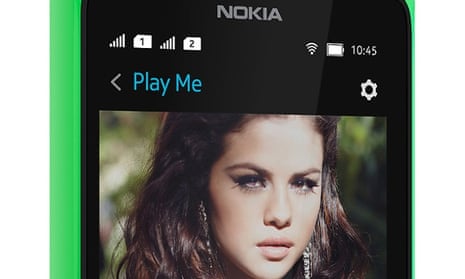Nokia's MixRadio streaming music app is spinning off as a standalone company, as part of deep cuts announced by its new parent company Microsoft.
MixRadio will continue to be preloaded on smartphones running Microsoft's Windows Phone software, but it will also have the freedom to explore other platforms like Apple's iOS and Google's Android.
"Basically, we’re planning a spin-off," said MixRadio chief Jyrki Rosenberg.
"I’ve been meeting with potential investors around the world in the last few weeks. We have very strong interest from investors in the US, Europe and Asia, and we remain open for further discussions."
MixRadio launched in 2011 as an app called Nokia Music, preloaded on Nokia's first Windows Phone handsets.
Rather than Spotify-style "on demand" access to streaming music, the app offered a collection of themed playlists – a feature called "Mix Radio" – curated by an in-house team at Nokia.
The basic app has always been free to use with no advertising: Nokia saw the app as a selling point for Lumia smartphones, rather than a direct moneymaker in its own right.
In early 2013, though, the company added an option to pay £3.99 a month for better audio quality, the unlimited ability to skip tracks and cache playlists on the smartphone, and a web version to access it on non-Nokia devices. The app was also rebranded as MixRadio, after its most popular feature.
On Windows Phone, MixRadio is available in 31 countries. Nokia has never published details of how many people are using it, although Rosenberg said the app currently has "millions of happy customers".
As an independent company, MixRadio will now have the freedom to launch on Android and iOS, which between them have a huge share of the smartphone and tablet market.
"The opportunity in this kind of setup is vast, and it’s much greater than what we’ve been able to benefit from today," said Rosenberg, while declining to enlarge on the company's plans beyond Windows Phone.
There are plenty of competitors. The biggest personal radio service is Pandora, which is only available in the US, Australia and New Zealand. It has more than 250m registered users, although a more accurate measure of its popularity is the 77m active listeners it reported in May.
In the UK, there is also BlinkBox, the Tesco-owned personal radio service that launched in 2013, and has since registered more than 1m users.
MixRadio's biggest competition, however, will come from the on-demand streaming services like Spotify, Deezer, Rhapsody/Napster and Beats Music, which all have personal radio features as part of their apps.
The fate of Microsoft's own Xbox Music streaming service following the company's cuts remains unclear.
Rosenberg said that MixRadio is spinning off because Microsoft's entertainment strategy is shifting towards working with a variety of external partners rather than running its own services.
That shift has already led to plans to shut down Xbox Entertainment Studios, Microsoft's division for commissioning and producing original TV shows for its Xbox One console, which may not bode well for Xbox Music.

Comments (…)
Sign in or create your Guardian account to join the discussion